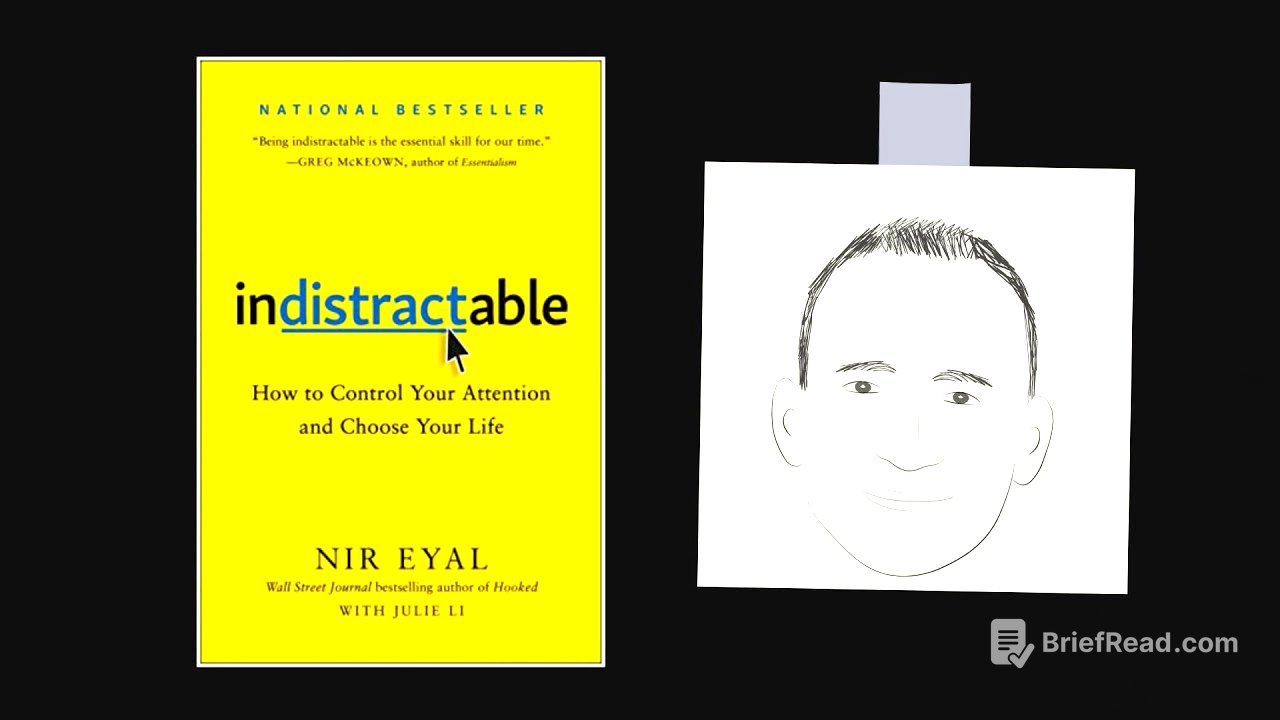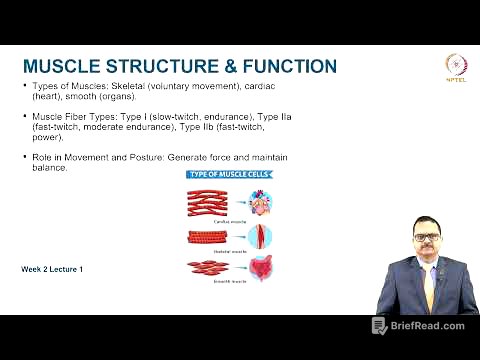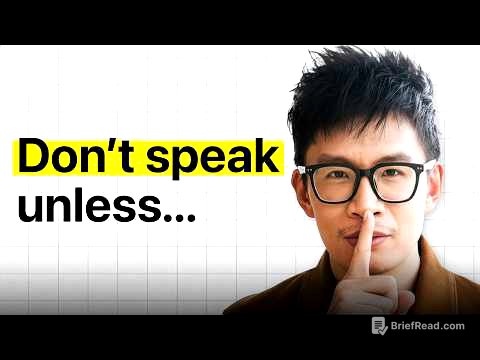TLDR;
This video summarizes key strategies from "Indistractable" by Nir Eyal for overcoming distractions and breaking bad habits. It emphasizes understanding and managing the discomfort that precedes distractions, using techniques like "surfing the urge" and "leaves on a stream" to handle cravings. The video also debunks the myth of ego depletion and introduces pacts—effort, price, and identity—to reinforce resistance to distractions.
- Distractions are often preceded by discomfort.
- Managing urges is key to avoiding distractions.
- Willpower is not a limited resource but can be strengthened with the right mindset.
- Pacts can provide additional leverage against temptations.
Understanding the Urge [0:00]
Every distraction is preceded by a period of discomfort, such as boredom, social anxiety, or stress. This discomfort leads the mind to seek relief through distractions like checking phones, agreeing to unnecessary meetings, or overeating. The key to handling distractions is learning to manage these uncomfortable urges. An urge is like a wave that builds, crests, and subsides naturally if not acted upon.
Riding the Wave of Discomfort [0:52]
To manage urges, imagine yourself as a surfer riding the wave of internal discomfort. Research shows that cravings subside naturally within about 10 minutes if you don't give in. Flight attendants who smoked experienced reduced cravings after breaks, regardless of whether they smoked. Author Nir Eyal suggests using the "ten-minute rule": when you feel the urge to check your phone or engage in other distractions, tell yourself you can give in, but only after waiting 10 minutes.
Leaves on a Stream Technique [2:30]
Another method to reduce urges involves imagining yourself seated by a gently flowing stream. Visualize placing your discomfort on a leaf and watching it float away. Repeat this process each time a new wave of discomfort arises until you feel in control. This practice, derived from acceptance and commitment therapy (ACT), has been shown to reduce cigarette cravings significantly.
The Myth of Ego Depletion [3:24]
The concept of ego depletion, which suggests that willpower is a limited resource that can be exhausted, is largely a myth. Studies have found that ego depletion is only valid when people believe it to be true. Willpower is more like an emotion that can be restored by altering your mindset. Seeing setbacks as opportunities and practicing gratitude can increase willpower, just as believing that resisting urges makes you stronger.
Leveraging Pacts Against Temptation [4:59]
To reinforce resistance to temptation, leverage pacts: effort pacts, price pacts, and identity pacts. Effort pacts involve adding friction between yourself and the distracting activity, such as using a K-safe to lock away tempting treats. Price pacts involve financial consequences for breaking the pact, like promising to burn money if you indulge in junk food or exceed screen time limits. Identity pacts involve publicly declaring what you stand for and what you avoid, such as announcing you're a vegetarian or stating in your email signature that you don't answer emails before noon.
Conclusion: Forethought as the Antidote [6:26]
Every distraction is preceded by discomfort. By riding the wave of discomfort, you can avoid distractions. Aim to ride each uncomfortable urge for at least 10 minutes, and use techniques like the "leaves on a stream" exercise to manage them. Reinforce your efforts with effort, price, and identity pacts. As Nir Eyal says, the antidote to impulsiveness is forethought.


![The CONSTITUTION [APUSH Review Unit 3 Topic 9 (3.9)] Period 3: 1754-1800](https://wm-img.halpindev.com/p-briefread_c-10_b-10/urlb/aHR0cDovL2ltZy55b3V0dWJlLmNvbS92aS82NlkxeUx2SFVQdy9ocWRlZmF1bHQuanBn.jpg)





